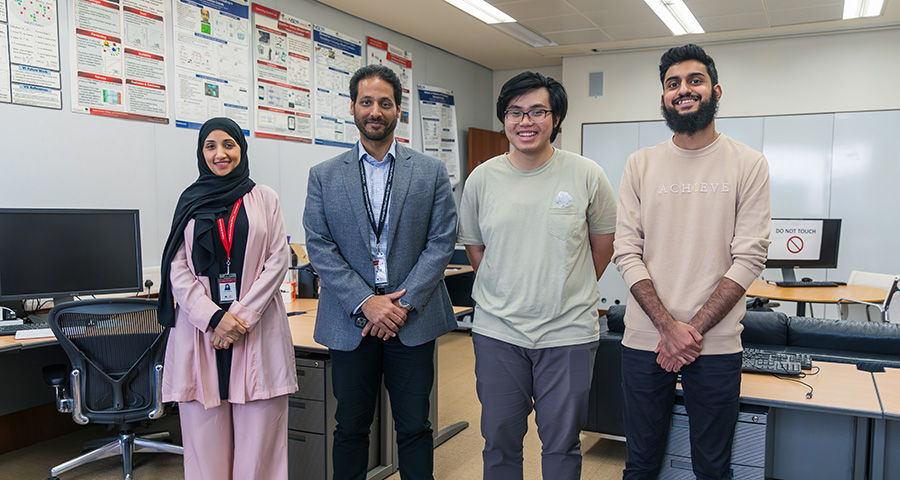
CMU-Q students publish federated learning research in IEEE Internet of Things Journal
Two computer science students at Carnegie Mellon University in Qatar (CMU-Q) have published their third research paper this academic year in an international journal. Thang Bui and Temoor Tanveer have worked for more than two years on a novel, realistic, open-source testbed for federated learning, and their work is published in the proceedings of two international conferences. The third paper will appear in IEEE Internet of Things Journal.
All three papers are co-authored by Hend Gedawy, a postdoctoral associate and an alumna of both CMU-Q and the School of Computer Science at Carnegie Mellon’s Pittsburgh campus, and Khaled Harras, teaching professor of computer science.
“It is an incredible achievement for an undergraduate student to publish even one paper in a peer-reviewed journal, let alone three,” said Harras. “I am incredibly proud of these students and the quality of their work.”
The first two papers were published in the Proceedings of the International ACM Conference on Modeling Analysis and Simulation of Wireless and Mobile Systems and the Proceedings of the 14TH IEEE International Conference on Cloud Computing Technology and Science.
“I never imagined when I decided to go to CMU-Q that I would have three papers published before I graduated,” said Bui. “I started researching this topic in my sophomore year and I was drawn in by the interesting questions. It has been a big part of my time at CMU-Q.”
Tanveer joined the project a few months after Bui, and the two have continued to work on the project while completing their studies. “The people in the computer science program at CMU-Q are so supportive of research,” he said. “It was a great opportunity for me to be this involved in a project at such an early stage of my academic career.”
Most large-scale machine learning takes place through a cloud-based process, where data is uploaded to a central server and processed there. One area of research interest for Harras and Gedawy is developing systems that support an alternative approach called Federated Learning.
“In Federated Learning, the data is processed locally, and then the results are sent to a central location. The raw data remains private and on the local device, which is a major concern for cloud-based solutions.”
For the project, the students developed a testbed for Federated Learning researchers to test their ideas in an environment that closely resembles real world conditions.
For Bui and Tanveer, their research has been a critical part of their education. “You learn so much doing research,” said Bui. “You solidify your understanding of theory, and you learn to translate your coursework into practical solutions.”
